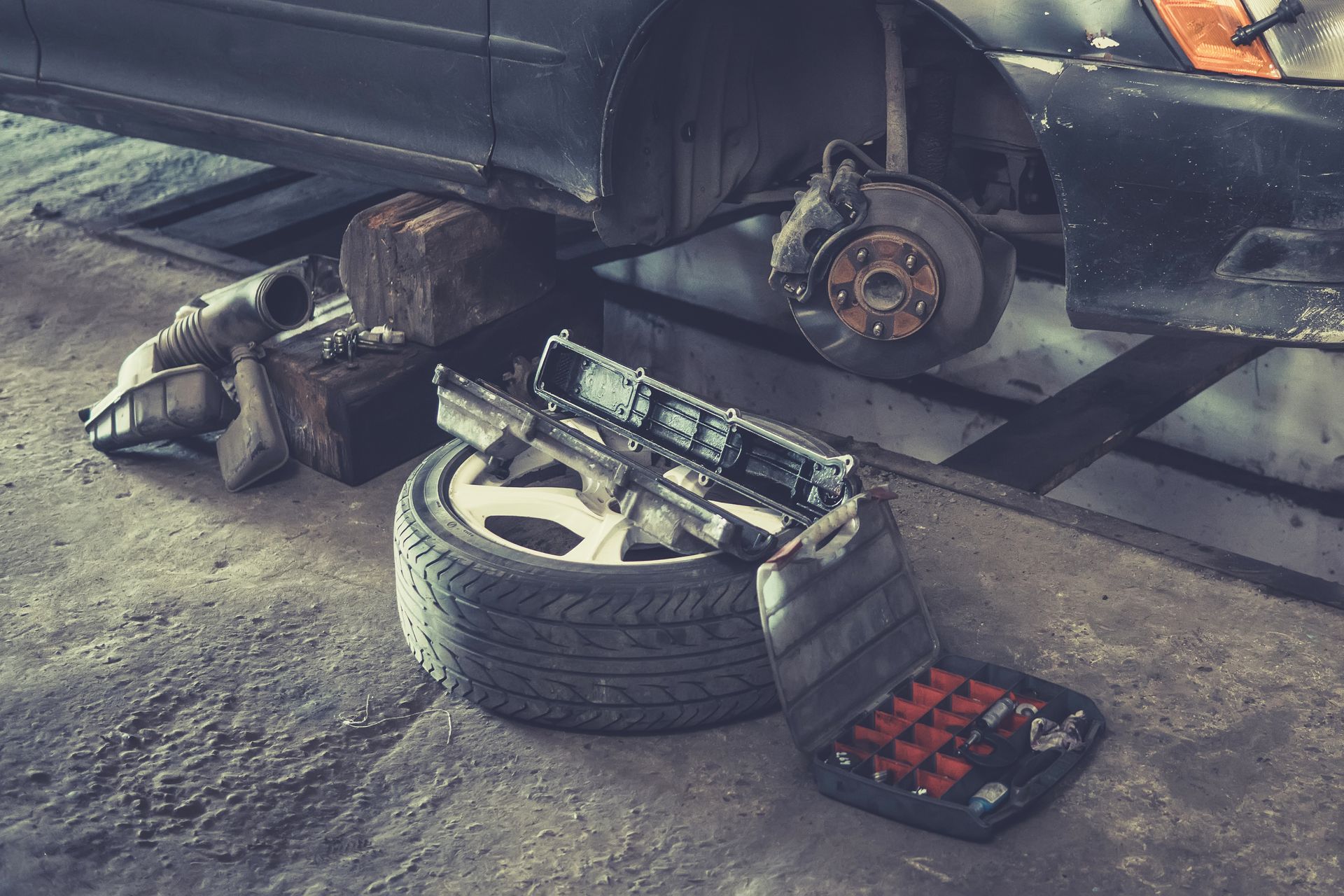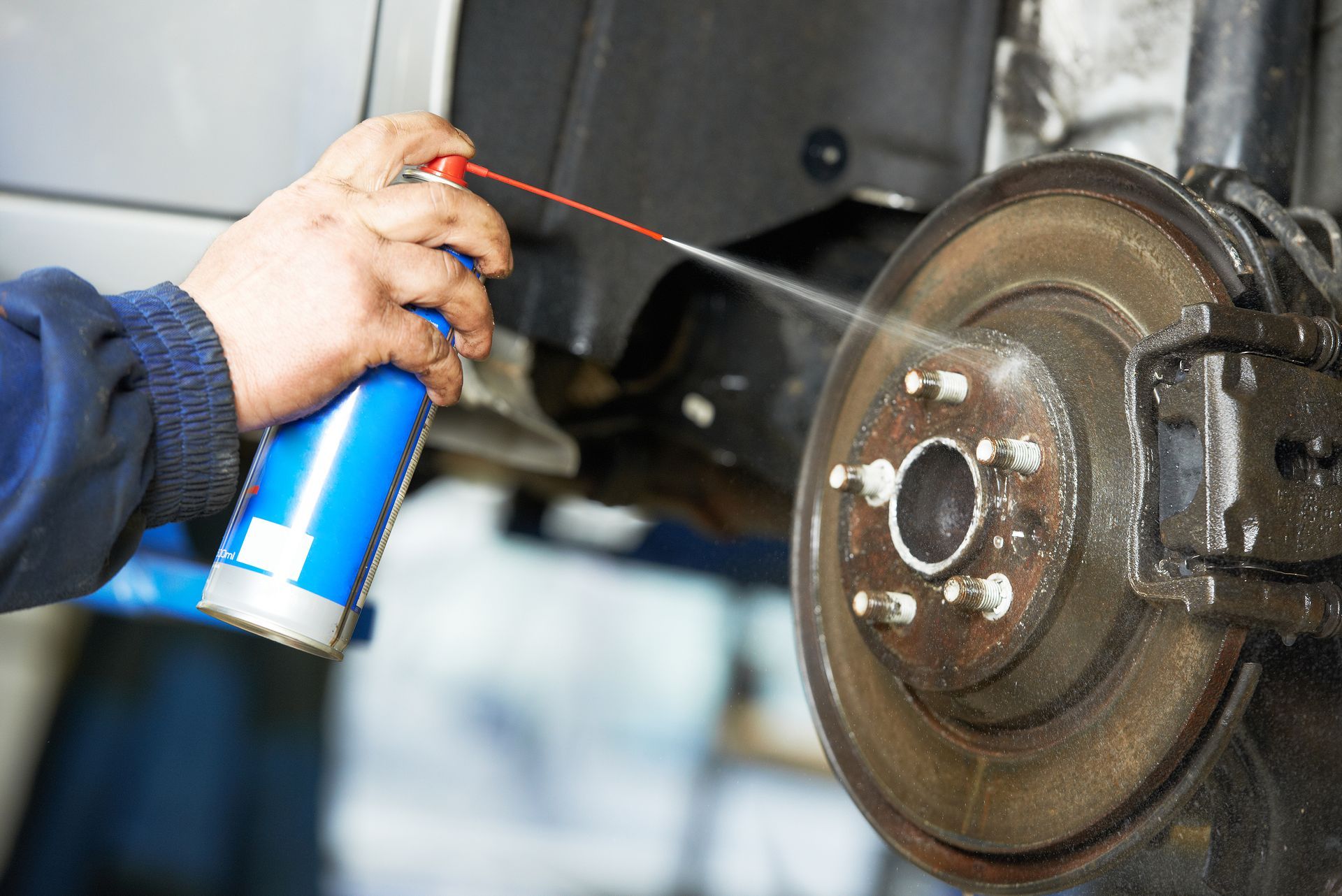Top Signs Your Car Needs Brake Repair and Maintenance

Top Signs Your Car Needs Brake Repair and Maintenance
Your car's brakes are its most critical safety feature. They need regular attention and maintenance.
But how do you know when your brakes need repair? What are the signs you should look out for?
This article will guide you through the top signs your car needs brake repair and maintenance. We'll cover common issues like unusual noises, brake pedal problems, and warning lights.
We'll also delve into the importance of brake pad replacement and the risks of ignoring these signs.
Whether you're a car owner, an automotive enthusiast, or just someone interested in vehicle safety, this guide is for you. Let's ensure your car's brakes are in top shape, keeping you safe on the road.
Understanding Your Brake System
Your car's brake system is a complex assembly of parts working together. It includes the brake pedal, brake pads, brake rotors, and brake calipers.
Each part plays a crucial role in stopping your vehicle safely. Understanding how these components work can help you identify potential issues. It can also help you communicate more effectively with your mechanic during repairs.
Common Brake Repair Signs
Being aware of the common signs of brake issues can help you address problems early. This can prevent further damage and ensure your safety on the road.
Unusual Noises: Squeaks and Grinds
One of the most common brake repair signs is unusual noise. If you hear a squeaking or grinding sound when you brake, it's often a sign of worn brake pads.
This noise is caused by the metal of the brake rotor coming into contact with the metal backing of the worn-out pad. It's a clear sign that your brake pads need replacing.
Ignoring this sound can lead to more serious damage. It can also compromise your vehicle's ability to stop quickly and safely.
Brake Pedal Issues: Spongy or Hard to Press
The feel of your brake pedal can also indicate potential issues. If the pedal feels spongy or soft when you press it, there could be a problem with the brake fluid or air in the brake lines.
On the other hand, if the pedal is hard to press, it could indicate a problem with the brake booster. Both situations require immediate attention to prevent brake failure.
Remember, a properly functioning brake pedal should feel firm and responsive. Any change in this feel should be investigated.
Vibrations and Pulsations: Warped Rotors
If you feel vibrations or pulsations in the brake pedal when you apply the brakes, it may be a sign of warped brake rotors.
Warped rotors can be caused by excessive heat or aggressive driving habits. They can also result from driving with worn-out brake pads for an extended period.
This issue can affect your vehicle's stopping power. It can also cause uneven wear on your brake pads, leading to more frequent replacements.
Pulling to One Side: Caliper Problems
If your car pulls to one side when you apply the brakes, it could be a sign of a stuck brake caliper. This issue can cause uneven braking and increase your vehicle's stopping distance.
A stuck caliper can also lead to uneven wear on your brake pads. It's a serious issue that needs immediate attention to prevent further damage and potential accidents.
Warning Lights and Messages
Never ignore warning lights on your dashboard. They are designed to alert you to potential issues with your vehicle, including the brake system.
If the brake warning light comes on, it could indicate a variety of issues. These range from low brake fluid to a problem with the brake hydraulics. Always consult a professional if any warning lights appear.
Brake Pad Wear: When to Replace
Brake pads should typically be replaced when they are worn down to less than a quarter of an inch. Some brake pads have built-in wear indicators that make a high-pitched screeching sound when it's time for replacement.
Regularly inspecting your brake pads can help you catch wear early. This can prevent damage to other brake components and ensure your vehicle stops effectively.

The Risks of Ignoring Brake Repair Signs
Ignoring the signs of brake issues can lead to serious consequences. The most immediate risk is a decrease in your vehicle's stopping power. This can increase your risk of accidents, especially in emergency situations.
Over time, untreated brake problems can also lead to more extensive damage. For example, driving with worn brake pads can warp your brake rotors. This can lead to more costly repairs down the line.
In the worst-case scenario, ignoring brake repair signs can lead to brake failure. This can put you and others on the road in serious danger. It's always best to address brake issues as soon as they arise.
When to Seek Professional Brake Repair
Knowing when to seek professional help is crucial in maintaining your vehicle's brake system. If you notice any of the brake repair signs discussed earlier, it's time to consult a professional. This includes unusual noises, changes in the brake pedal feel, vibrations, pulling to one side, or warning lights.
A professional mechanic has the tools and expertise to accurately diagnose and repair brake issues. They can identify problems that may not be obvious to the average driver. This can save you time and money in the long run.
Remember, brake repair is not just about replacing worn parts. It's also about ensuring the proper function and safety of your vehicle. Regular brake inspections by a professional can catch potential issues before they require major repairs.
Conclusion: The Importance of Timely Brake Maintenance
Understanding and recognizing brake repair signs is a critical aspect of responsible vehicle ownership. It contributes to safer roads for everyone and can save you from costly repairs in the future. Ignoring these signs can lead to more severe issues, such as brake failure or accidents.
Regular brake maintenance can extend the life of your vehicle and improve its performance. It's not just about addressing current issues but also about preventing potential problems. This includes regular checks of brake fluid levels, brake pad wear, and the condition of brake rotors and calipers.
In conclusion, timely brake maintenance is essential for your safety and the longevity of your vehicle. It's always better to address brake repair signs early, ensuring peace of mind and protecting your investment in your vehicle.


